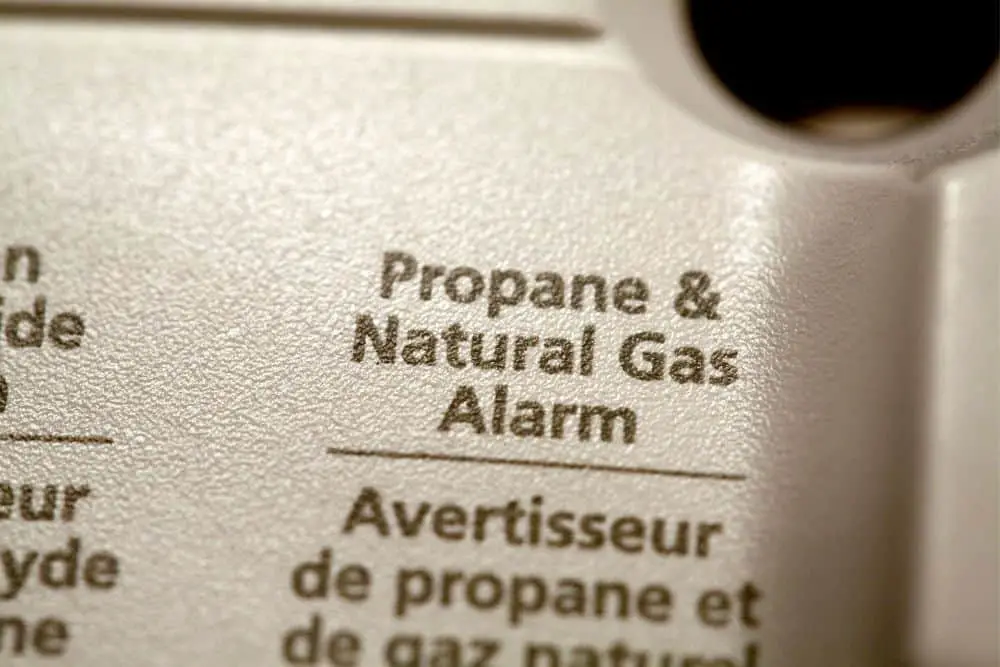Spraying something as simple as Febreze can set off an RV propane alarm. But one should never dismiss the ringing of their propane alarm, whether false or not. Instead of ignoring the constant ringing, you should wonder about what to do when your RV Propane alarm is going off.
Whether the RV propane alarm going off is false or not, the first thing you should do after hearing it is switching off the main propane supply. Make sure to open all the windows and doors to let any possible gas escape the RV.
But that’s not all. There’s more to learn about what should be the best course of action when propane alarms in your RV goes off. Also, being aware of all the possible reasons that may make your propane alarms go off is also of great importance in such situations. All which I will talk about in this article in great detail.
Why is Your RV Propane Alarm Going Off?
There can be many reasons why your RV propane alarm is going off. Propane and carbon monoxide detectors are sensitive. They are engineered in such a way that they can detect even the lowest amount of propane in an enclosed area.
Sometimes chemical gases other than propane can also set off your RV propane alarm. It can be any kind of aerosol spray, insect spray, hair spray, or even sunscreen spray. Again cooking smoke or fumes can also set off your RV propane alarm.
Again, chemical cleaners used to clean the carpet or the propane detector can also set it off. A putrid dog fart or even your own may set off the propane alarm. This can happen if you or your dog fart near the detector. Using air fresheners can also set off the alarm.
Other than chemicals and gases, the alarm can go off if the battery of the detector is low and needs charging. Moreover, alarms older than 5 to 7 years can go haywire. The sensor of an old propane detector often breaks down. Hence, the constant ringing of the alarm is a symptom that indicates you need to replace the old detector with a new one.
What to Do When Your RV Propane Alarm is Going off?
The propane detector alerts you of a potential gas leak early on, giving you ample enough time to take action. So, whether a false alarm or not, the first thing you should do if the propane alarm goes off is turn off the propane supply from the main tank.
When your RV propane alarm is going off, your first instinct should not be to turn off the alarm. You should not dismiss the alarm just because you cannot smell the propane gas leak. You need to take the alarm seriously because whether or not it is a false alert, it is still indicating a potential gas leak.
Propane is originally an odorless gas. Because it can be a fire hazard in enclosed places, manufacturers added methyl mercaptan to give it an odor. Factory manufactured propane has a stench like rotten eggs or sulfur.
By the time the human nose can detect the propane gas leak, it can be too late. Because, the odor of propane is affected by many things such as water, air, and rust. Again, by the time your nose detects the gas leak, there would be high levels of propane in your RV. Hence, the last thing you should rely on when it comes to detecting any type of gas leak is your nose.
When your propane alarm is going off, you should first get out of your RV and switch off the gas supply from the main propane tank outside. Open up the windows, doors of your RV and ventilate the room.
Call your local RV technician and get your propane supply tank leak checked professionally. They will use a manometer and a specialized meter all professional technicians do to leak check. Do not use propane or the stove till you are 100% sure there is no gas leak.
Now how to tell if your propane alarm is going off due to gas leaks, low battery, cleaning chemicals, or a fart? Well, if the alarm stops ringing after you ventilate your room, then it is propane that sets off the detector in the first place.
It is better not to take any chances. If your propane alarm goes off, you should call a technician to do a thorough check. Other than that, you should conduct leak checks in your RV once or twice a year.
How to Clean Your RV Propane Alarm?
Propane alarm detectors in your RV need routine maintenance and cleaning. You should clean it at least once or twice a week using the soft brush attached to the vacuum cleaner. With it, you should vacuum off the front of the detector.
You can also use a moist paper towel or a lint-free cloth to wipe the propane detector. Then dry off the cover of the alarm using a dry lint-free cloth. Since, propane detectors are sensitive to chemicals, do not use chemicals or solvents to clean them.
Other than cleaning, you need to regularly make sure that the indicator light on the front of the propane alarm is green If it is blinking red, then the battery charge is low, and you need to replace it.
How to Replace RV Propane Alarm?
If your RV alarm keeps ringing despite there being no gas leak, it can mean that it has expired. To replace an RV Propane alarm all you need to do is unscrew, cut the wires of the old detector, connecting wires, and screwing on the new detector.
The back of the RV alarm displays its manufacturing dates. Do not wait for the propane detector to completely stop working or get ruined before replacing it.
Before cutting wires and re-attaching them, the first step to replacing a detector is buying a new one. While purchasing the new detector, you should try to get a dual one that alerts and switches off the main propane supply. For example, the dual detector gas valve solenoid detects the leakage of both carbon monoxide and propane. Then it sends signals to the solenoid which automatically turns off the main supply.
Here are the other steps of replacing an old propane detector with a new one,
Switch off Power to the Alarm
Cut the propane detector’s power off from the circuit. Your RV probably has a DC circuit, and thus, you can cut off the power by removing the fuse. It is usually distinctly marked on the circuit’s power panel.
Cut and Strip the Wires
Cut the two wires after unscrewing the faceplate of the propane detector. Then, using wire strippers, remove the shielding from the end of the cut wires.
Rewire and Re-Attach Detector
Using a connector, securely connect the wires of the new alarm with the wires you cut. Colour matches the new and old wires before connecting them. Screw the new detector back in place, and you are done replacing your old propane alarm.
Test New Alarm
Replace the fuse and turn the power of the circuit back on. Then by pressing the text button on the new detector, check if it works fine. Keep on checking till the propane detector’s front light shows solid green.
Conclusion
Disasters don’t knock before occurring, and thus it is better to be safe than sorry. Take no chances with your safety, especially while using combustible gases like propane. Install, clean, and check the propane detector in your RV regularly.
Do not take any alarms lightly. I hope this article helped you understand what to do when your RV propane alarm is going off. Keep a cool head while dealing with that situation, and happy camping!


